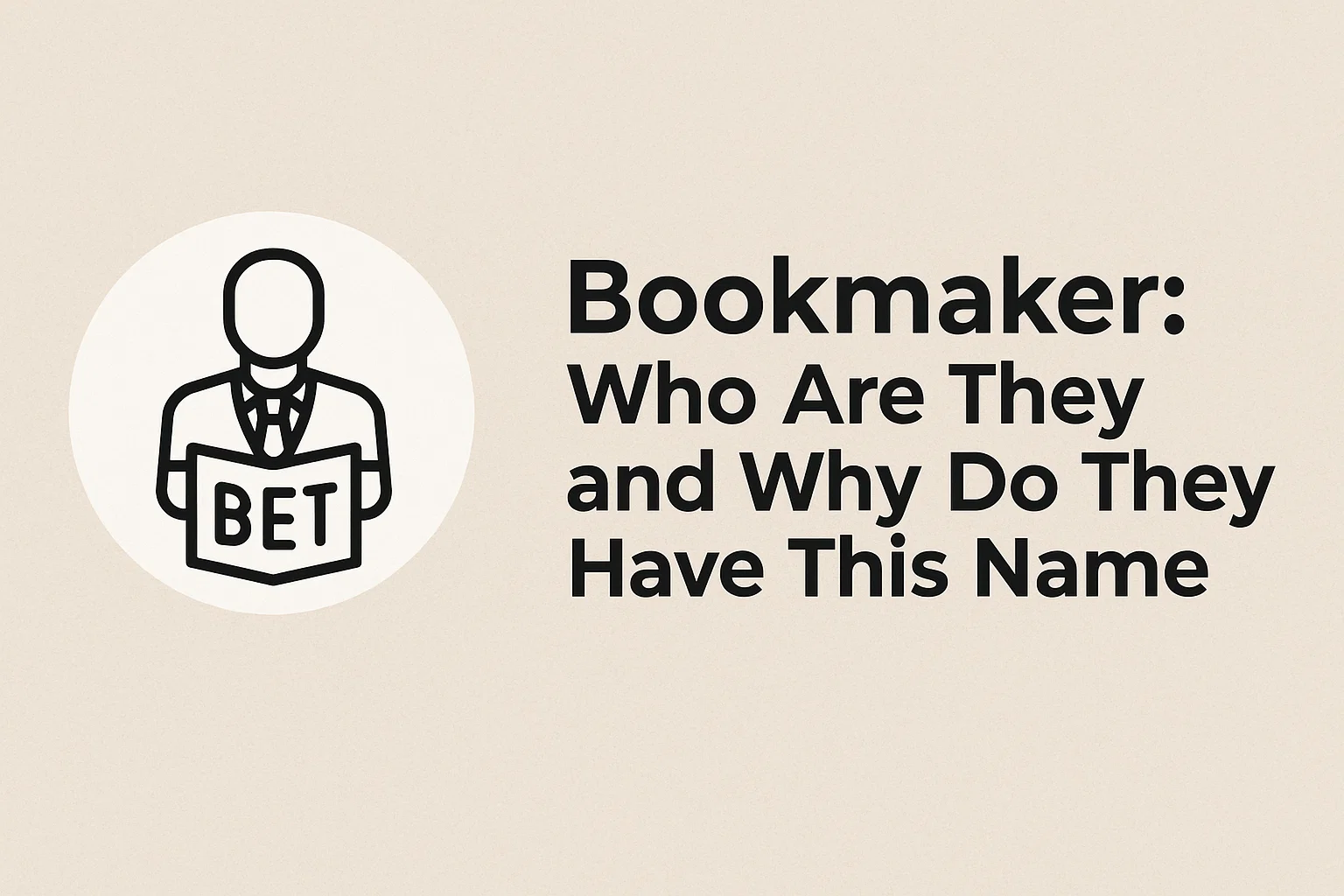


Have you ever come across the term bookmaker? Do you know what it is all about? And why is there "book" in its name? Let's find out who bookmakers are, where this peculiar name came from, and how they are connected to online gambling sites.
We hear more and more about bookmakers nowadays, but not everyone knows what it is, who they are, and why they are called so. Even people who love books might be interested in the term because "book" is included in the name.
If you are among them—no need to worry! In this post, we will examine the history of the term and the work of individuals who perform this job. Ready to learn more?
The word bookmaker has gained currency in the betting and gaming universe. A bookmaker, or "bookie," is an individual or a company that facilitates and guarantees the pooling of legal bets, either on sports or other events.
Naturally, this practice is governed by national law, which varies from state to state. Bookmakers are generally expected to facilitate the openness and integrity of the betting process.
While bookies were once limited to betting on sports, that is no longer the case. Nowadays, you can bet on just about anything—like who is going to win the Nobel Prize for Literature.
A key point to keep in mind is that the bookmaker you choose must be legally permitted to carry out business in your country. For example, in India, gambling is a state issue, and only specific kinds of betting (e.g., horse racing and lotteries) are permitted by law. Always use licensed and approved services.
Why are they called that? And why does "book" appear in their title?
To discover where bookmaker originated—and why the term refers to someone who deals with legal bets—we need to go back to the days of 18th-century England, when horse racing existed.
Bookmaker is a compound word of "book" and "maker", and it literally translates as "one who makes the book."
But what does that mean? "Making the book" is a term that refers to a specific activity during races: the bookmaker would take note in a book of all the bets made and the payouts. That is, they built the betting book from scratch. Whilst a colleague—who had already set the odds—called for the public to place bets.
Interestingly enough, this profession started totally informally. In one of the earliest documented horse races among bookmakers' predecessors, the winner's prize wasn't money, but a meal—a small banquet at the loser's house after the race. This was one of the earliest documented sporting bets, and it was the beginning of what would eventually be the modern bookmaking industry.
A bookmaker accepts bets from punters and arranges the payment of potential winnings.
To understand how well-established this profession is today, observe that in India, bookmakers who are licensed primarily operate their business via turf clubs, specifically for horse racing, where the regulations are strict and the betting authorities in the locality monitor them. The industry is growing, and the government is contemplating more certain regulation for online betting websites as well.
It is part of a bookmaker's job to calculate odds correctly. The objective is to ensure that the bookmaker never pays out more than they receive in bets.
Traders take into account the likelihood of a particular result—a winning horse, a football team, or an event—and decide on the odds. The odds are the multiplier for the stake if the bettor wins.
The more probable the result, the smaller the odds. That's because more people will likely bet on a strong favorite—a top football team against a lower-division team, for example. In the event the odds were too good, the bookmaker could lose heavily.